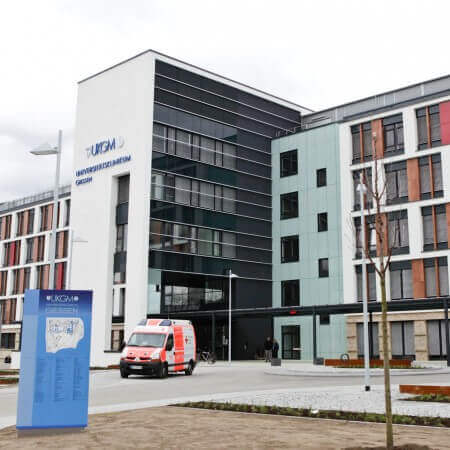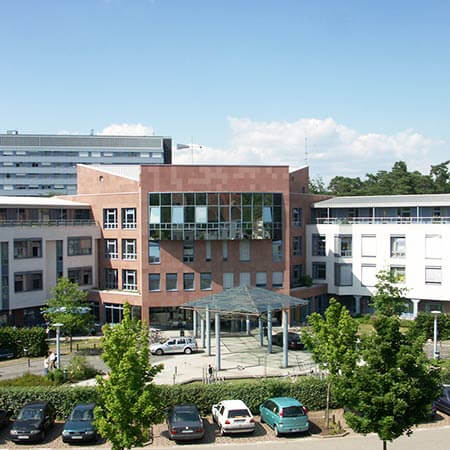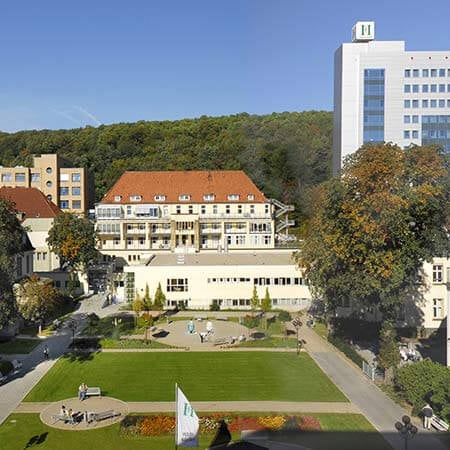About the disease
A pancreatic cyst is a sac-like deposit of fluid, which develops in the pancreas. The pancreas is an organ that produces hormones, including insulin, which help the body to digest food. In most cases, a pancreatic cyst does not cause any symptoms. Many people do not even know they have one unless it is large enough to create an obstruction. It is mostly a benign condition, but in some cases it can become cancerous over time, which is why it is important to monitor them. Usually, a doctor will need to examine the fluid from the pancreatic cyst to determine whether or not it is cancerous.
Very often, pancreatic cysts are mistaken for pseudocysts. Pseudocysts are composed from different cells than actual cysts, and have neither epithelial nor endothelial cells. Pseudocysts need to be treated as well, as they can also cause complications.
There are many factors that can lead to the development of a pancreatic cyst. Having a genetic predisposition is one of them. Certain genetic mutations can lead to the development of cysts throughout a person's life. Previous inflammation of the pancreas, such as pancreatitis, can cause cyst formation, along with heavy alcoholism and bad dietary habits. Having gallstones, previous surgery on the abdominal area or injury of the pancreas can also become risk factors.
The best way to avoid the formation of a pancreatic cyst is to lead a healthy lifestyle and avoid drinking alcohol in excessive quantities. People whose parents have been diagnosed with pancreatic cysts are advised to attend regular check-ups. Generally speaking, this condition is rarely dangerous as long as the cyst stays benign. Nonetheless, pancreatic cysts are often removed as a precautionary measure, to prevent the development of cancer.
Symptoms
In most cases, pancreatic cysts have no symptoms. However, if symptoms do appear, this is what to look out for:
- Abdominal pain
- Pain radiating to the back
- A mass in the upper abdomen, which can be palpated
- Nausea
- Weight loss
- Weakness
- Fatigue
- Fever, in rare cases
- Diarrhea, in rare cases
Diagnosis
- During a general examination, the doctor will palpate the patient’s abdominal area to locate the exact source of pain.
- The doctor will ask the patient if they have suffered any injuries to the pancreas in the past or have ever had pancreatitis.
- The doctor will ask the patient about the medications they take, since some can cause abdominal pain.
- Imaging tests of the pancreas, such as CT and MRI scans, are performed to find out if the patient does indeed have a cyst and if so, where it is and how big it is.
- An ultrasound may be performed, to examine the cyst more closely.
- Doctors can determine whether or not the cyst is cancerous by obtaining fluid from it.
Treatment
- If a cyst does not cause any symptoms, the doctor may recommend regular monitoring before resorting to surgery.
- Pseudocysts may be drained.
- Surgery may be required to remove the cyst from the pancreas.
Authors:
This article was edited by medical experts, board-certified doctors Dr. Nadezhda Ivanisova, and Dr. Bohdan Mykhalniuk. For the treatment of the conditions referred to in the article, you must consult a doctor; the information in the article is not intended for self-medication!
Our editorial policy, which details our commitment to accuracy and transparency, is available here. Click this link to review our policies.













